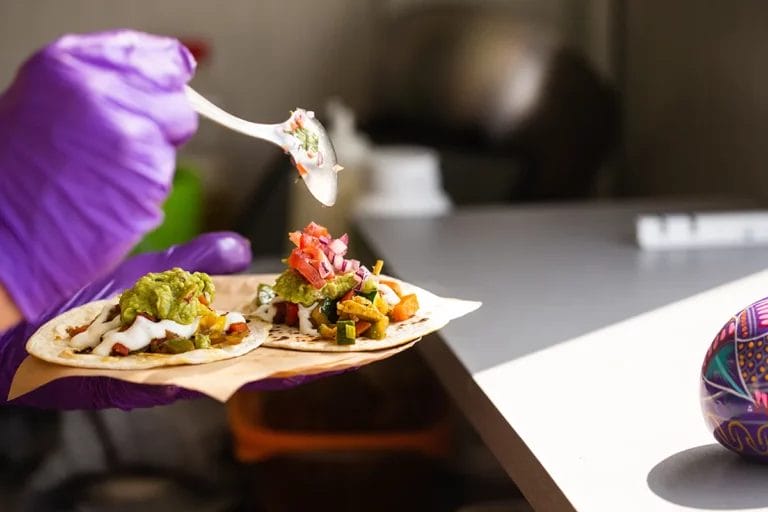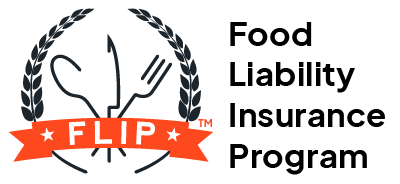Understand Food Truck Requirements in Ohio
Before you start applying for licenses and permits for your food truck, you need to meet a few requirements:
- Business name: Aim for a name that’s easy for people to remember and clearly describes the type of food you make.
- Business classification: Most food trucks are sole proprietorships, but you can also create a partnership, limited liability company (LLC), joint venture, etc.
- Employer identification number (EIN): Register with the Internal Revenue Service (IRS) to get your EIN, which is used for tax purposes.
- Bureau of Workers’ Compensation registration: Ohio requires you to register with this bureau regardless of whether you plan to have employees.
- Certificate of Insurance (COI): Once you purchase insurance for your food truck business, you receive your COI. This document contains the necessary details about your coverage and limits commissary kitchen owners and venue managers want to see before they work with you.
- Business plan: A thorough business plan is critical for keeping you on track to achieving your business goals. Banks and other lenders will ask to see it before issuing loans, so it should be a top priority.
Pro Tip: Ohio.gov has helpful resources for opening a business, including a comprehensive startup guide.
Obtain Food Truck Licenses in Ohio
After meeting the basic requirements to set up your Ohio food truck, you can apply for necessary licenses and permits.
Keep in mind that while some licenses are required at the state level, many are mandated by individual counties and cities. Check with your local government to ensure you have the correct permits for your area.
Business License
- Officially recognizes your business in the state of Ohio
- Cost: $39–$99, depending on your business’ legal structure
- Where to get it: Ohio Secretary of State
Vendor License
- Allows you to collect and remit sales tax in Ohio
- Cost: $50
- Where to get it: Ohio Department of Taxation
Mobile Food License
- Required by some local governments for all mobile food vendors
- Cost: Varies depending on city/county
- Where to get it: Your local health department via the Ohio Department of Health’s directory
Peddler’s Permit
- Required by some cities, including Columbus, for businesses selling goods at temporary locations
- Cost: $70
- Where to get it: Your city’s permit or zoning department
Food Handler's Permit
- Issued after passing a test on food safety and handling best practices
- Cost: $12.95
- Where to get it: 360 Training
Follow Ohio Food Truck Laws
Ohio has laws that all food trucks must follow to maintain public safety. If you are found violating these laws intentionally or not, you could face a fine, suspension, or be forced to close your business.
A few of the most important laws to be aware of include:
- Commissary agreement: Your local health department may require you to have a commissary agreement so you can store and/or prepare your food in a licensed commercial kitchen facility.
- Fire code compliance: Food trucks in Ohio are subject to inspections from local fire officials to make sure they don’t pose a safety hazard to employees or the public.
- Zoning restrictions: Ohio cities pass their own zoning laws that determine where food trucks can legally park and operate, including how long they’re allowed to park in one area. Regardless of which city your business is based in, if you travel to a different one for a festival or other opportunity, you must adhere to their zoning laws.
- Health inspections: Your local health department will perform routine health inspections on your food truck, which may include a pre-licensing inspection.
Pro Tip: Use our health inspection checklist to make sure your truck is prepared and ready to pass!
Get Ohio Food Truck Insurance
Insurance is a must-have for Ohio food trucks.
If a customer trips on your generator cable and hurts themselves, or a strong gust of wind blows your awning into a neighboring vehicle at a festival, you can be held responsible for paying these third-party expenses.
This can cost you thousands of dollars. In fact, the average food truck claim costs $6,271.
Ohio food business insurance from Food Liability Insurance Program (FLIP) is designed to cover some or all of the cost of claims like these, saving you the financial burden.

Learn the Cost of Starting a Food Truck in Ohio
The U.S. Chamber of Commerce estimates that the average food truck business owner spends more than $28,000 per year to comply with legal requirements.
Beyond permits and licenses, there are other standard operating costs to factor into your budget:
- Food truck
- New: $75,000–$150,000
- Used: $30,000–$80,000
- Cooking equipment
- Grill/griddle: $2,500
- Deep fryer: $1,200
- Oven: $1,000–$3,500
- Refrigeration
- Refrigerator/freezer: $2,000–$1,500
- Prep table: $1,000–$3,000
- Safety and sanitation
- Commercial sink: $1,000–$2,500
- Handwashing sink: $200–$500
- Fire suppression system: $1,000–$2,500
- Technology
- Point of Sale (POS) system: $1,000–$3,000
- Inventory management software: $20–$200 per month
Pro Tip: Ensure you’re breaking even with a smart menu pricing strategy that covers your expenses and ensures a profit!
Sell at Ohio Food Truck Festivals
Ohio is full of lively food truck festivals. They’re an excellent way to gain exposure to new customers and network with other entrepreneurs in your area.
If you’re planning to participate in a food truck rally in Ohio, check out these popular festivals:
- Columbus Food Truck Festival
- Food Truck Festival and Shop Hop
- Akron Food Truck Festival
- Cincinnati Food Truck Association (CFTA) Food Fest
Be sure to check out our directory of food festivals for more events to apply to!
Pro Tip: Competition for festival spots can be fierce, especially during the peak spring and summer months. Learn essential tips for getting your food truck into festivals and increase your chances of getting accepted!
FAQs About Starting a Food Truck in Ohio
Are There Specific Zoning Regulations for Food Trucks in Ohio?
While exact regulations differ between cities, Ohio zoning laws often include restrictions on:
- Hours of operation: Some cities, such as Fairborn, prohibit food trucks from operating during certain times of day
- Parking: Food trucks are not allowed to block the flow of traffic or access points to roads or driveways
- Proximity to other businesses: Cities may have rules requiring food trucks to park a certain distance from traditional brick-and-mortar restaurants to prevent unfair competition
- Operating areas: Food trucks are often restricted to operating within certain zoning districts in each city
What Are the Fire Safety Requirements for Food Trucks in Ohio?
Some of the fire safety requirements your food truck must meet include:
- One five-pound ABC portable fire extinguisher within your food truck
- One Class K extinguisher for any food trucks with cooking equipment using vegetable/animal oils or solid fuels
- One carbon monoxide detector (unless your truck does not have equipment powered by fossil fuels)
- Any propane tanks secured to the rear of your truck must be at least 30’’ off the ground

Alex Hastings
Seattle-based copywriter and (WA) licensed insurance agent Alex Hastings leverages her experience as a lover of fast-casual food, baked goods, and iced oat milk lattes. She holds a B.A. in Creative Writing from Western Washington University. Before working at Veracity, she was a retail copywriter at Zulily and an English language teacher in South Korea. Alex is fully trained on FLIP insurance coverages and writes content that connects food and beverage business owners with the policies they need.
Seattle-based copywriter and (WA) licensed insurance agent Alex Hastings leverages her experience as a lover of fast-casual food, baked goods, and iced oat milk lattes. She holds a B.A. in Creative Writing from Western Washington University. Before working at Veracity, she was a retail copywriter at Zulily and an English language teacher in South Korea. Alex is fully trained on FLIP insurance coverages and writes content that connects food and beverage business owners with the policies they need.

Kyle Jude
Kyle Jude is the Program Manager for Food Liability Insurance Program (FLIP). As a dedicated program manager with 10+ years of experience in the insurance industry, Kyle offers insight into different coverages for food and beverage business professionals who are looking to navigate business liability insurance.
Kyle Jude is the Program Manager for Food Liability Insurance Program (FLIP). As a dedicated program manager with 10+ years of experience in the insurance industry, Kyle offers insight into different coverages for food and beverage business professionals who are looking to navigate business liability insurance.

